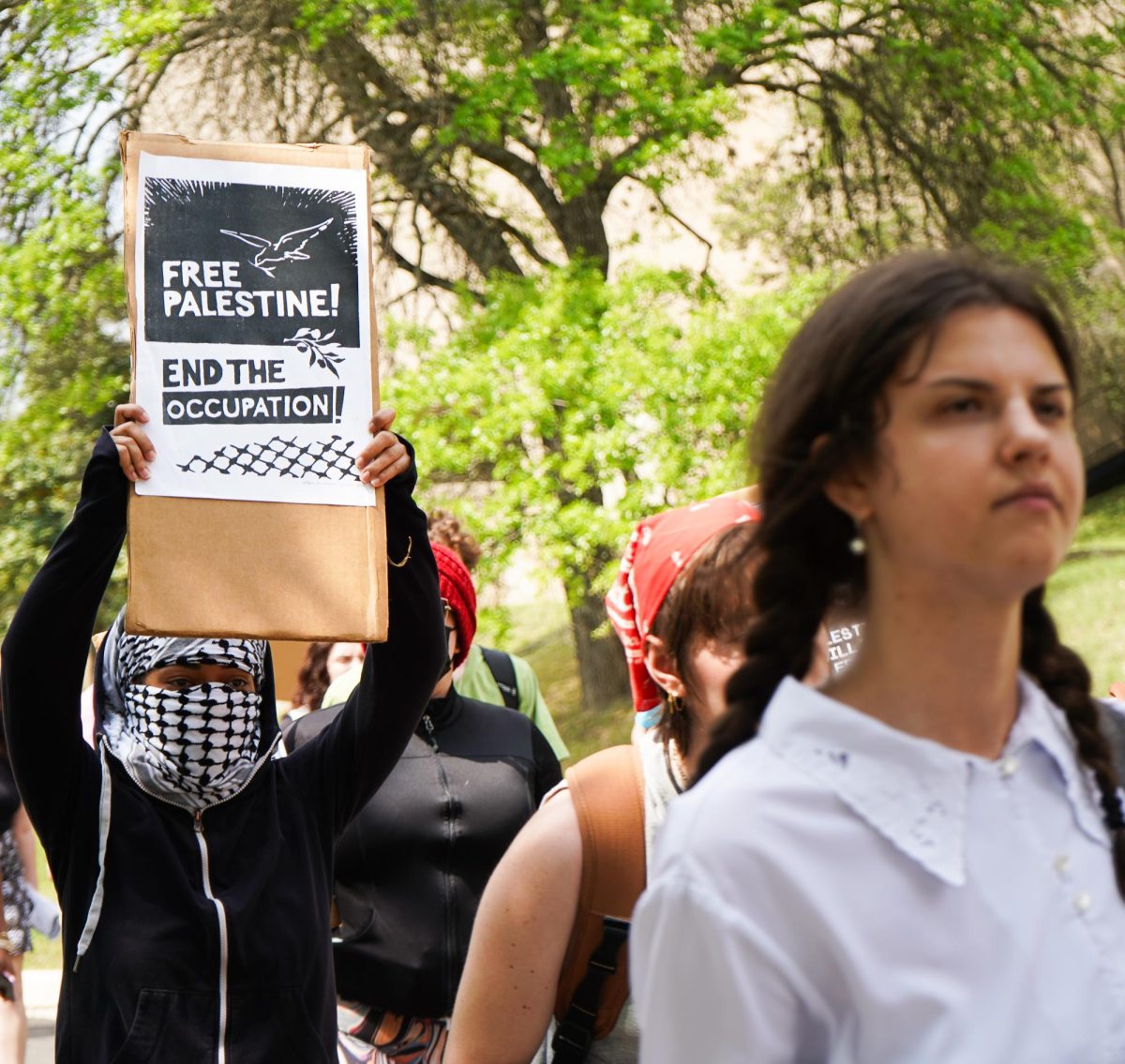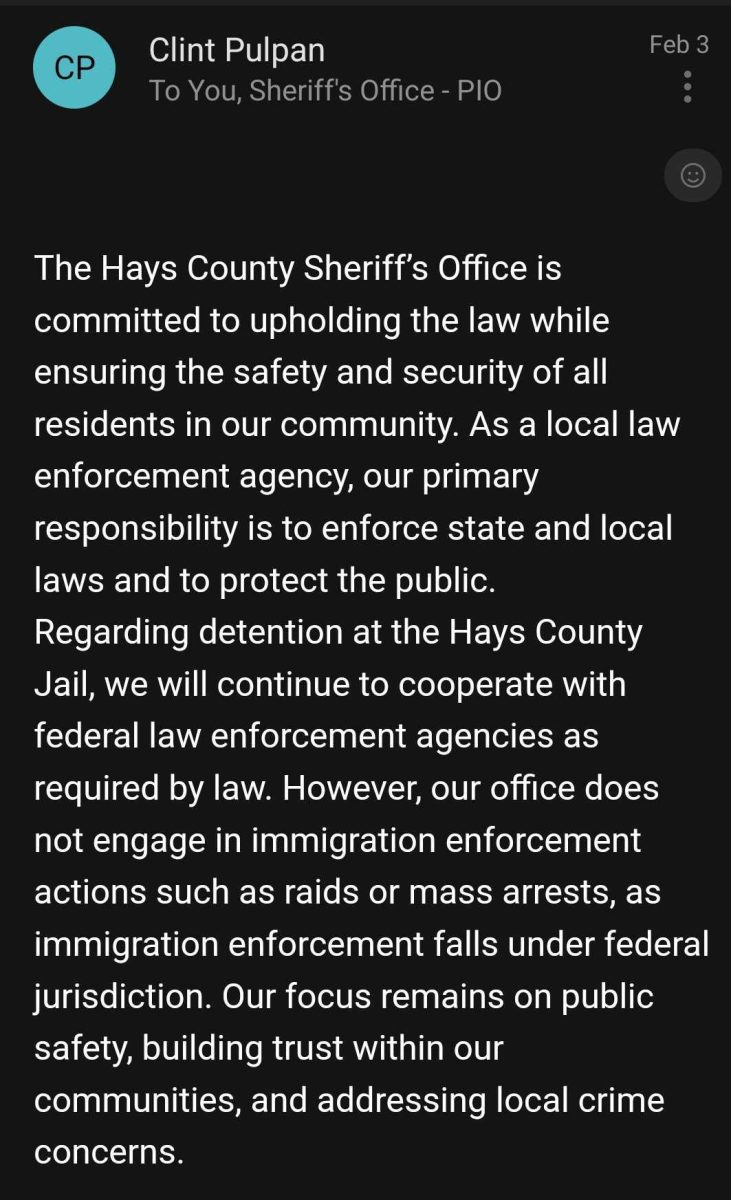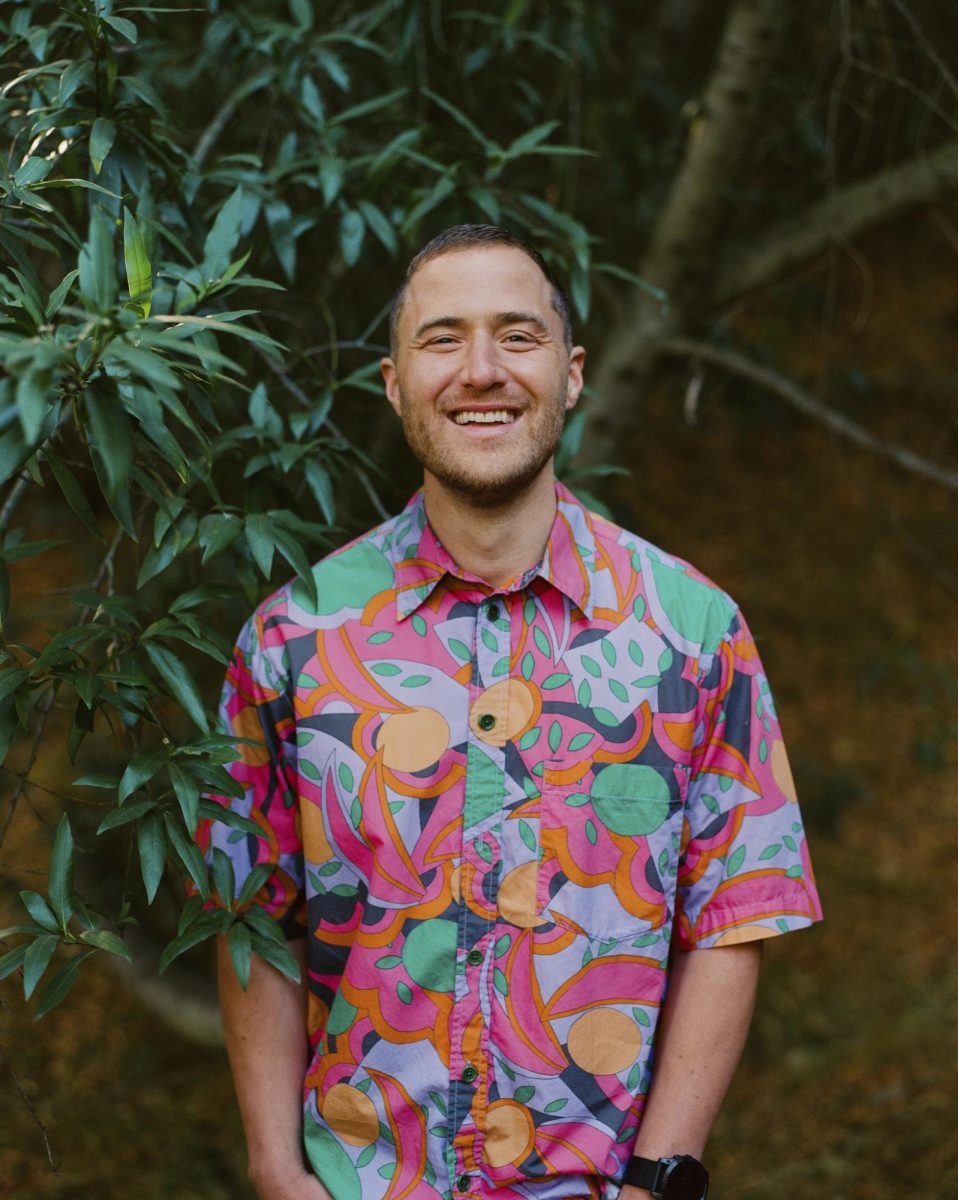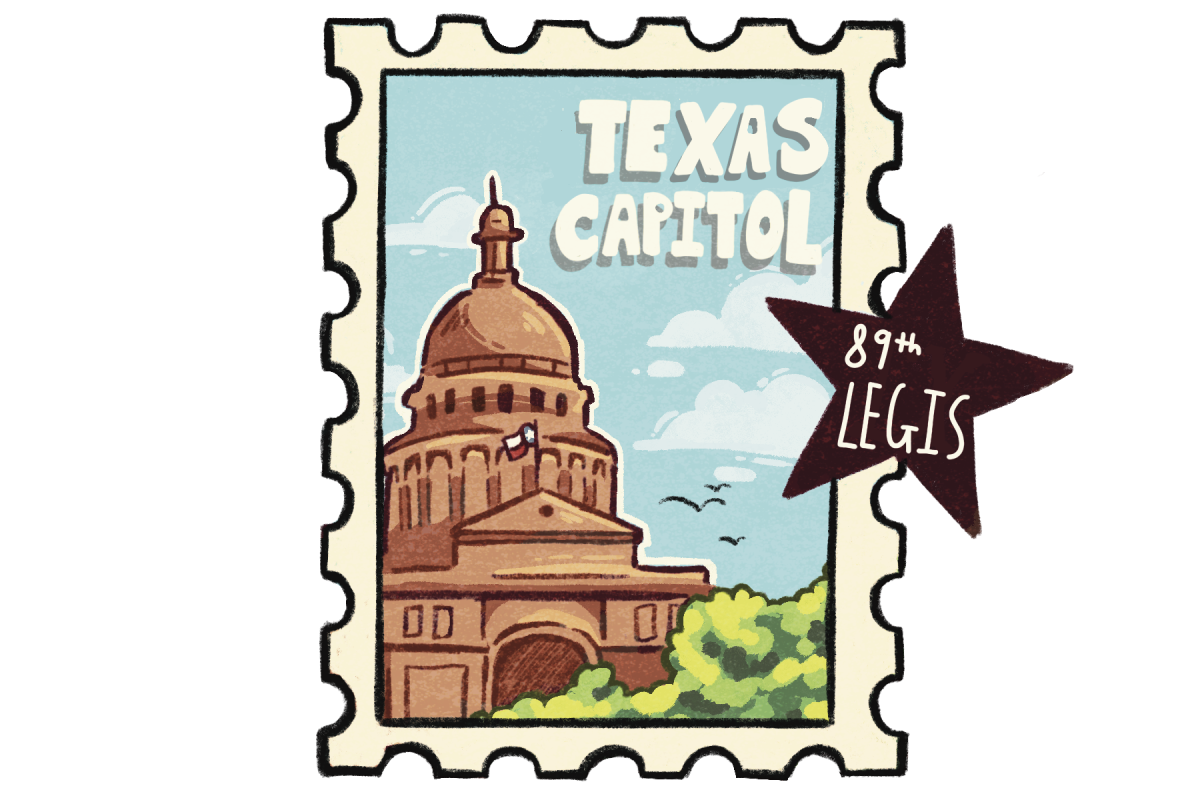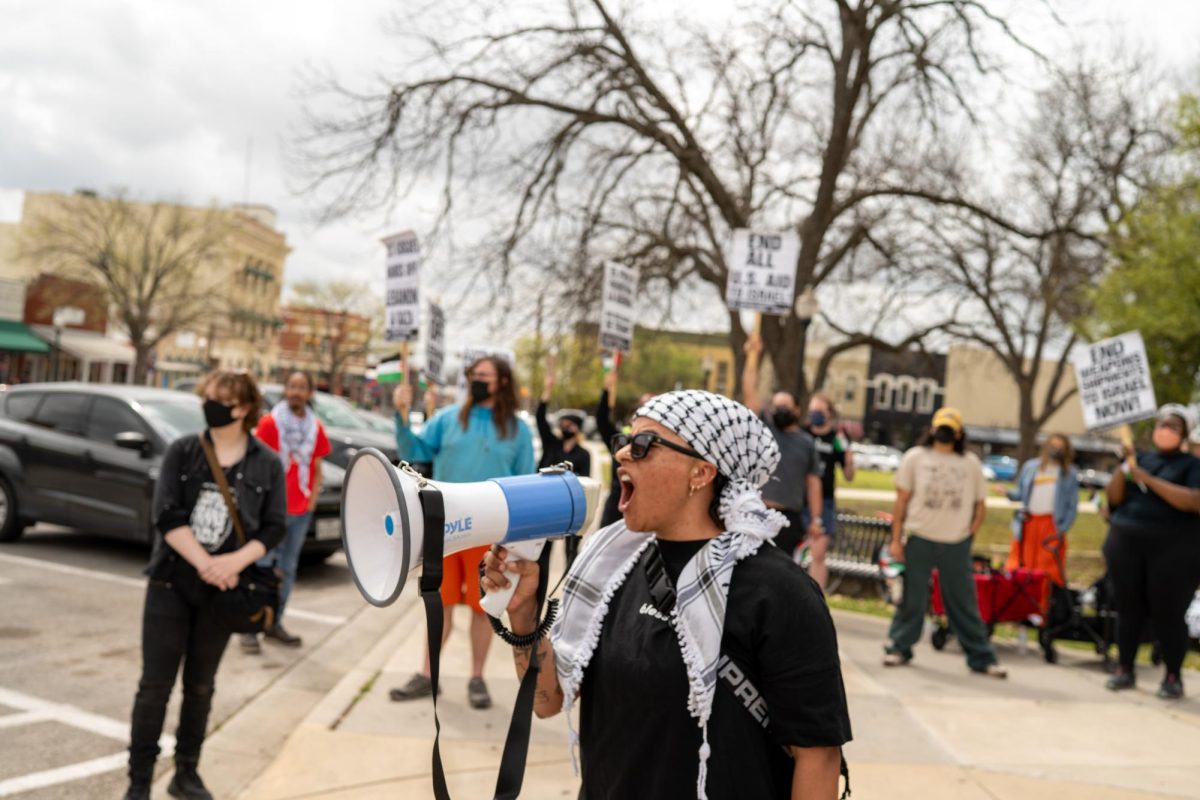Recent shootings in El Paso and Odessa, Texas, revitalize relevance of the Texas State ALERRT program “Don’t Name Them” campaign.
Advanced Law Enforcement Rapid Response Training is a center at Texas State providing training classes for immediate responses to an active shooting. Its research team employs strategies—like the “Don’t Name Them” campaign—to prevent crimes before they happen.
The center was founded in 2002 as a partnership between the Hays County Sheriff’s Office, San Marcos Police Department and the university. It received state funds in 2002 and federal funds the following year.
ALERRT has trained over 150,000 first respondents in every state in the country and all additional external territories. In 2012, the center was recognized by the FBI as the national standard in active shooter response; the level one class is taught in conjunction with FBI agents.
Additionally, ALERRT employs a research team lead by Hunter Martaindale, Ph.D. graduate from Texas State with a focus in criminal justice. Data collected regarding active shooter events are uploaded to the results website.
The research team seeks to analyze the best responses to active emergencies and pursues methods of preventing crime altogether. There is a particular focus on potentially deterring future potential attackers by advocating for minimal representation of their identity in media.
Pete Blair, executive director of ALERRT and criminal justice professor, said representing an offender in the news after a shooting is providing that person with a platform, so he encourages turning the focus elsewhere.
“We know the name is going to get out there,” Blair said. “We aren’t suggesting it should be hidden in some way, but rather be aware that if you make this person the front-page story with wall-to-wall coverage, you’re providing them what they want, which is bad. The general idea is to shift focus away from the offender and instead talk about the community, the heroes and when appropriate, the victims.”
These ideas formed the creation of the Don’t Name Them campaign. The proposal is simple: not sensationalizing the names of shooters in any way during briefings or media coverage of tragedies. The campaign was formed by ALERRT, the I Love U Guys Foundation and the FBI.
Research indicates the mass coverage of an offender’s name may inspire other potential offenders to commit to similar acts of violence, pointing to the observed exponential increase of mass shootings since the early 2000s.
The National Center for Health Research reports, “On average, a mass shooting has occurred every 47 days from June 2015 until now. Before 2000, there were about three mass shootings per year. While the exact definition of a “mass shooting” is debated, a 2015 Congressional Research Service report defined a mass shooting as four or more killings in a single incident (not including the shooter), and this definition is frequently used.”
Campaigns exist similar to Don’t Name Them, and some take a stronger stance on what should be represented in the media. The No Notoriety campaign calls for the media to not share any written proclamations, threats or similar aspects from a shooter.
Tom Treves, founder of No Notoriety, said statements made by offenders being shared are often manifestos and sharing this information may be dangerous.
“Refusing to broadcast, publish photos and/or self-serving statements made by the individual—that’s the key piece,” Treves said. “Many of (the statements) have manifestos. I struggle to think the media that publish manifestos actually spent the time to read the manifestos to identify the motivation. Realize the prospect of infamy could serve as a motivating factor and will inspire copycat crimes.”
Mass shootings across the country are often met with calls for gun control legislation. Texas is a state ripe with debate over gun control laws, especially following recent tragedies.
Brittany Frisby, San Marcos resident, said not naming shooters may be effective. However, seemingly small action is not enough to bring substantial change.
“I think not naming the shooters definitely reduces the chance of there being copycats, but I also think until there’s legislation in place that regulates the purchase of firearms, these shootings will not stop,” Frisby said. “I’m sure in countries where gun control is not a huge problem not naming the shooter would help, but not in the U.S. where there are mass shootings weekly.”
Time will tell if alterations to the media’s approach to covering shootings will have an effect on the frequency of devastating crimes. As debates continue, it is unknown whether or not new legislation is being discussed at the state or federal government.
For data regarding all documented active firearm attacks between 2000 and 2018, visit ALERRT’s study results website.
Categories:
‘Don’t Name Them’ campaign dedicated to minimizing media coverage of mass shooting perpetrators
October 20, 2019
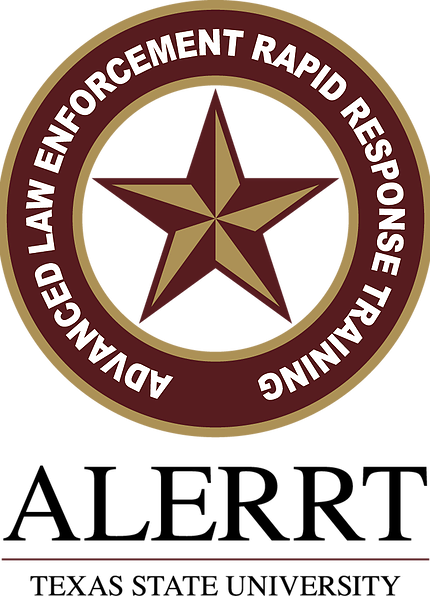
By
Photo credit: Courtesy of ALERRT
0
Donate to The University Star
Your donation will support the student journalists of Texas State University. Your contribution will allow us to purchase equipment and cover our annual website hosting costs.
More to Discover



